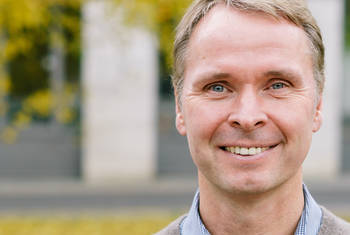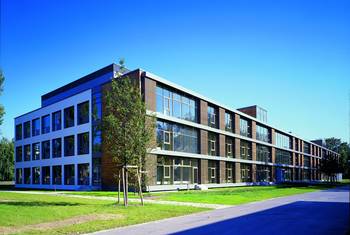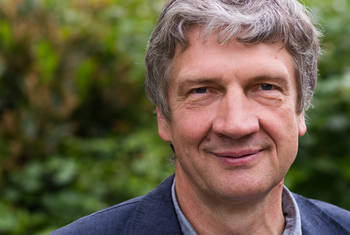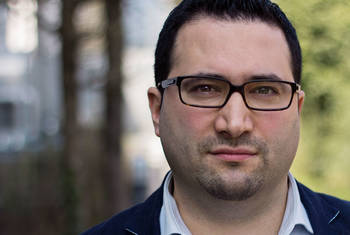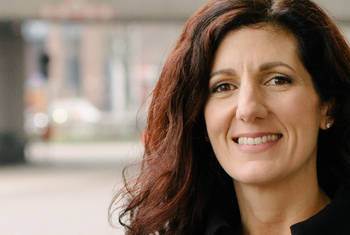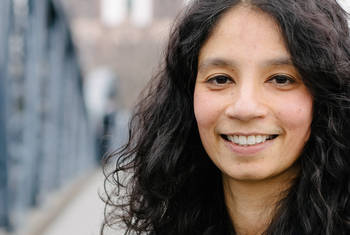Volker Haucke How Does The Recycling Process Within Eukaryotic Cells Work on a Molecular Level?
Volker Haucke is Director of the Leibnitz Institute for Molecular Pharmacology, Professor of Molecular Pharmacology at the Free University Berlin as well as a faculty member of the Charité University for Medicine Berlin. In 2003, he received the Young Investigator Award of the European Molecular Biology Organization, where he also became an Elected Member in 2014. Haucke‘s research revolves around the molecular mechanisms of exo-endocytosis and endolyososomal membrane dynamics and its role in cell signaling, especially in the nervous system. This also involves using the new-found insights to develop treatments for diseases linked to these processes.
Area of Research
Pharmacology, Cell Biology
since 2012
Full Professor of Molecular Pharmacology
Free University of Berlin (Freie Universität Berlin)
since 2012
Director
Leibniz Institute for Molecular Pharmacology (FMP) (more details)
since 2012
Faculty Member
Charité University Medicine Berlin
since 2005
Full Professor of Biochemistry
Free University of Berlin (Freie Universität Berlin)
Institute of Chemistry and Biochemistry, Department of Membrane Biochemistry
2008-2011
Full Professor of Biochemistry
Free University of Berlin (Freie Universität Berlin)
Institute of Chemistry & Biochemistry
2008-2011
Full Professor of Biochemistry
Charité - University Medicine Berlin (Charité - Universitätsmedizin Berlin)
2003-2005
Professor of Biochemistry
Free University of Berlin (Freie Universität Berlin)
Institute of Chemistry and Biochemistry, Department of Membrane Biochemistry
2000-2003
Assistant Professor
University of Göttingen (Georg-August-Universität Göttingen)
Center for Biochemistry & Molecuar Cell Biology
1997-2000
Postdoctoral Research Associate
Yale University
2003
Habilitation in Biochemistry
University of Göttingen (Georg-August-Universität Göttingen)
Center for Biochemistry & Molecuar Cell Biology
1997
PhD in Biochemistry
University of Basel (Universität Basel)
1994
Diploma in Biochemistry
University of Basel (Universität Basel)
- Editorial Board, Biology Cell (2005 - 2009; 2011 - present)
- Editorial Board, Journal Biology Chemistry (USA, 2007 - 2012)
- American Society for Biochemistry & Molecular Biology (ASBMB)
- American Society for Cell Biology, Bethesda, USA (ASCB)
- Faculty of 1000, Neuronal Signaling
- Federation of European Biochemical Societies (FEBS)
- German Society for Biochemistry & Molecular Biology, Frankfurt, (GBM)
- German Society for Cell Biology (DGZ), Heidelberg
- GK 1123 "Hippocampal Plasticity"
- Helmholtz International Research School Molecular Neurobiology at MDC
- NeuroCure Cluster of Excellence
- SFB 740 "Functional Protein Modules"
- SFB 765 "Multivalency"
- SFB 958 "Scaffolding of Membranes"
- Society for Neuroscience, Washington D.C. (SFN)
- Study Section, "Biochemistry“ of the German Funding Agency (DFG)
- TransCard Research School at MDC
Prizes
- Avanti Award of the American Society for Biochemistry & Molecular Biology (ASBMB) (2017)
- Reinhart-Koselleck-Award of the Deutsche Forschungsgemeinschaft (DFG) (2016)
- Young Investigator Award (YIP), European Molecular Biology Organization (2003)
Fellowships
- Long-Term Fellowship Award, Human Frontier Science Program (1998)
- Long-Term Fellowship Award, European Molecular Biology Organization (1997)
- Short-Term Fellowship Award, European Molecular Biology Organization (1995)
- Boehringer Ingelheim Fellow (1994)
- Dr. Carl-Duisberg-Foundation Scholar (1993)
- Scholarship Holder of the Studienstiftung des deutschen Volkes (1990-1993)
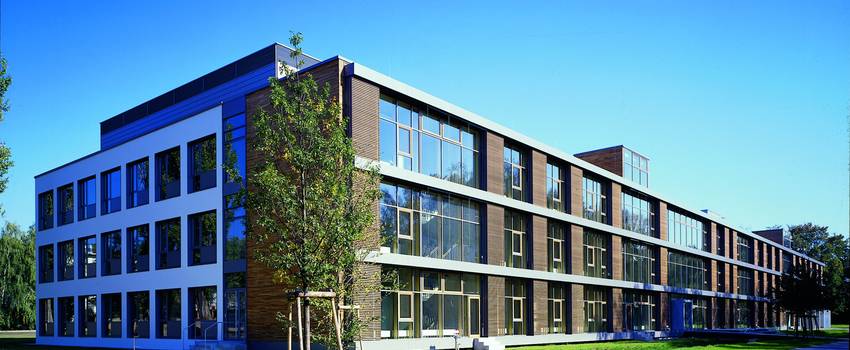 © FMP
© FMP

Leibniz Institute for Molecular Pharmacology (FMP)
The FMP conducts basic research in Molecular Pharmacology with the aim to identify novel bioactive molecules and to characterize their interactions with their biological targets in cells or organisms. These compounds are useful tools in basic biomedical research and may be further developed for the treatment, prevention, or diagnosis of disease.
To this aim FMP researchers study key biological processes and corresponding diseases, such as cancer, aging including osteoporosis, or neurodegeneration. They also develop and apply advanced technologies ranging from screening technologies over NMR based methods to proteomics and in vivo models. (Source: FMP)
Department
Department of Molecular Pharmacology and Cell Biology
The focus of research in the Haucke laboratory is the dissection of the molecular mechanisms of endocytosis and endolysosomal membrane dynamics and its role in cell signaling and neurotransmission. The laboratory uses a wide range of technologies that include biochemical and molecular biological approaches in vitro, chemical biology and screening technology, super-resolution and electron microscopy as well as genetic manipulations at the organismic level in vivo. The overarching goal of these studies is to provide a mechanistic understanding of exo-endocytosis and endolysosomal function and its regulation by proteins and lipids and to use this know-how to develop novel strategies for acute chemical and pharmacological interference. (Source)
Map
The research presented in the video investigates how endosomes are able to transport material back to the cell surface in a process called recycling or endosomal exocytosis. In order to do so, endosomes have to have their own identity which is defined by a phosphoinositide, Phosphatidylinositol 3-phosphate (PI3P). To deliver the material to the cell surface the endosomes have to get rid of their old PI3P identity and acquire a new identity that is characteristic of the plasma membrane such as PI4-phosphate (PI4P). VOLKER HAUCKE explains that understanding how this conversion of phosphoitnositide identities occurs is important to understand communication within a cell and how it may be related to diseases.
LT Video Publication DOI: https://doi.org/10.21036/LTPUB10330
A Phosphoinositide Conversion Mechanism for Exit from Endosomes
- Katharina Ketel, Michael Krauss, Anne-Sophie Nicot, Dmytro Puchkov, Marnix Wieffer, Rainer Müller, Devaraj Subramanian, Carsten Schultz, Jocelyn Laporte and Volker Haucke
- Nature
- Published in 2016


